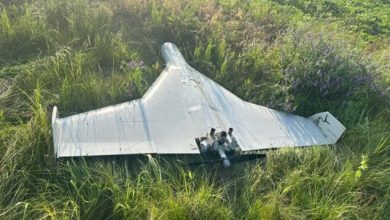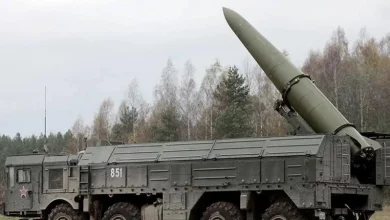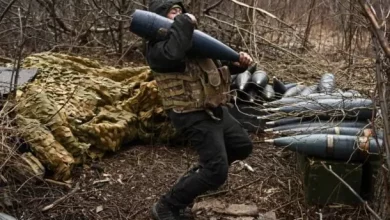Türkiye plays key role in picking new NATO chief

Mark Rutte is expected to become NATO’s new secretary-general soon as Türkiye hopes the outgoing Dutch prime minister’s agreement with Ankara on improving relations with the bloc will lead to action on counterterrorism and the lifting of defense sanctions
Türkiye, which has the second largest army in NATO, has played an important role in determining the position of secretary-general, the highest-level job in the alliance.
Ankara, which was appreciated for the vision it put forward in diplomacy, carefully scrutinized the secretary-general candidates for a long time, according to a report in Sabah newspaper. In the end, Türkiye supported Dutch Prime Minister Mark Rutte for the position for the next five-year period. Rutte’s name is expected to be announced at the NATO leaders’ summit to be held in Washington on July 9-11, which coincides with NATO’s 75th anniversary. President Recep Tayyip Erdoğan will be present at the summit.
Türkiye has questioned Rutte’s stance on counterterrorism, sanctions against the Turkish defense industry and relations between the alliance and the European Union, which long-stalled Türkiye’s accession bid.
Rutte met Erdoğan in April in Istanbul as he sought endorsement. “NATO’s southern wing needs Türkiye and its leadership,” Rutte told a joint news conference with Erdoğan after their meeting.
“Türkiye is a geopolitical actor with significant influence in the region. They’re working to help end the war in Gaza. They’re also making an effort regarding the horrible war in Ukraine,” Rutte had remarked.
Erdoğan for his part had assured Türkiye’s decision would be within “the framework of strategic wisdom and fairness” regarding the new NATO chief.
For Türkiye, counterterrorism largely includes the fight against the PKK and its offshoots, a terrorist group that has led a bloody campaign against the Turkish state since the 1980s, claiming more than 40,000 lives. It is recognized as a terrorist group in Türkiye, the United States and the European Union.
Ankara often condemns “relations” between the terrorist group and certain NATO members as “unacceptable,” “a threat against member states” as well as “against the spirit of alliance.” Those members include the United States, which openly supports the Syrian wing of the PKK through military equipment shipment, under the guise of a fight against Daesh in Syria.
Türkiye refused to ratify the membership bids of Sweden and Finland for more than a year until the Nordic nations met Turkish demands like tightened measures against terrorist groups.
Ankara has lauded the stance of Rutte’s predecessor Jens Stoltenberg, who served as secretary-general for 10 years as the latter emphasized that Türkiye, among NATO allies, suffered the most from terrorism. Stoltenberg has also opposed sanctions in the field of defense that targeted Türkiye. Türkiye faced U.S. sanctions after it purchased S-400 missile systems from Russia. The sanctions put a ban on U.S. export licenses and authorizations for a defense conglomerate overseen by Türkiye’s Presidency of Defense Industries (SSB).
Rutte’s stand on NATO-European Union relations was also an important issue for Ankara, with Türkiye emphasizing that the EU is a political alliance and NATO a military alliance.
Rutte last Thursday clinched the race to become the next head of NATO at a pivotal time for the alliance after sole challenger Romanian President Klaus Iohannis pulled out.
The veteran politician, 57, should take over when current chief Jens Stoltenberg’s term ends on Oct. 1.
Tough job for Rutte
Rutte will come in at a perilous moment for the Western alliance as Russia’s war in Ukraine drags on and Donald Trump battles to reclaim the U.S. presidency in November. After staking a claim for the NATO post following the collapse of his coalition, staunch Ukraine backer Rutte quickly won the support of the United States, Britain, France and Germany.
But he had to use all the diplomatic skills gleaned during almost 14 years in charge of the Netherlands to win over hold-outs led by Türkiye and Hungary. Rutte overcame Turkish reticence with an April visit to Istanbul, before finally sealing a deal with Hungarian Prime Minister Viktor Orban at a European Union summit last week. That left the last sticking point as Iohannis, whose surprise bid had ruffled feathers among allies banking on a smooth appointment for Rutte ahead of a NATO summit in Washington next month. Romania’s security council on Thursday announced that Iohannis had formally withdrawn and that the country backed Rutte.
“It’s taken a really long time,” quipped Rutte to public broadcaster NOS. “It’s a complicated process, but it seems to be going well.” Rutte will have a lot on his plate when he takes the reins from Norway’s former premier Stoltenberg, who has led the alliance since 2014. Just weeks after his four-year term starts, the United States will have to choose between incumbent Joe Biden and Trump as president. The prospect of the volatile Trump returning to the Oval Office has rattled allies fearful he could weaken Washington’s role as Europe’s ultimate security guarantor.
Trump fuelled those fears on the campaign trail by saying he would encourage Russia to attack NATO countries not spending enough on their own defense.
Like Stoltenberg, Rutte won plaudits for his careful handling of Trump during his first term in power, when the ex-reality TV star reportedly even mulled pulling the United States out of NATO. “I think Mark Rutte is a very strong candidate,” Stoltenberg said in Washington last Tuesday. “He has a lot of experience as prime minister. He’s a close friend and colleague.”
To NATO’s east Rutte will face a far more pressing menace from Russian President Vladimir Putin. The Kremlin’s forces are currently on the front foot in Ukraine after more than two years of conflict, and the NATO chief will have a key role in marshaling aid from Ukraine’s weary backers. At the same time, he will have to ensure the alliance is ready to defend against any potential future attack from Russia. Part of that will involve corralling European allies to spend more on defense, a key demand from Trump, and other U.S. leaders.
Alongside Ukraine, the biggest challenge will be “to ensure that defense spending remains high in Europe … given the world we’re living in,” Rutte said.
Last week, NATO announced that 23 out of its 32 member countries had hit the alliance’s target of spending 2% of gross domestic product on defense.
Dubbed “Teflon Mark” for his ability to remain in power for so long in the Netherlands, Rutte will become the fourth Dutchman to lead NATO since it emerged from the ashes of World War II to confront the Soviet Union.
The bicycling conservative threw his country’s economic weight behind Ukraine after Russia’s 2022 invasion, leading efforts to deliver F-16 fighter jets to Kyiv. While NATO countries along the alliance’s eastern flank had pushed for one of their own to get the NATO job, Rutte’s backers insist he is fully aware of the threat posed by Russia.
Source: DailySabah





